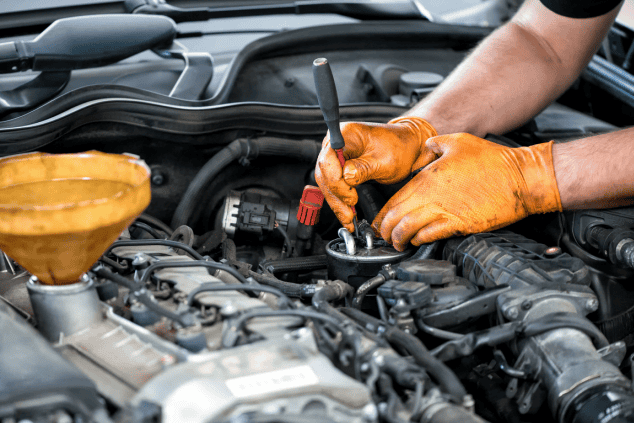Your vehicle requires regular maintenance throughout the year, with each season providing unique challenges. Here’s a guide to preparing your vehicle for each season:
Spring
– Tires: Check the tread and pressure. Worn-out tread can be dangerous, especially in rainy conditions. Rotate or replace the tires as necessary.
– Lights: Inspect headlights, brake lights, and turn signals to ensure they are functioning properly. This helps other drivers see when you’re turning or braking.
– Fluids: Verify fluid levels, especially windshield wiper fluid to handle springtime bugs. Change the oil according to the manufacturer’s guidelines to keep the engine running smoothly.
– Windshield Wipers: Ensure they are in good condition for clear visibility.
– Cleaning: Wash and wax the vehicle to remove winter salt residue and prevent rust.
Summer
– Air Conditioning: Ensure the system is working efficiently to keep the interior cool.
– Radiator and Coolant: Check levels to prevent the engine from overheating. Inspect hoses for any leaks.
– Tires: Summer travel can be tough on tires, so check the tread condition regularly. Note that tire pressure can increase with higher temperatures, so monitor it frequently.
– Emergency Kit: Prepare a summer emergency kit with water, sunblock, and a cap for protection against the sun.
Fall
– Lights: Ensure all headlights, brake lights, and turn signals are functioning properly. Clear communication between vehicles is essential for safe driving.
– Heater and Defrosters: Verify that your heater is working efficiently and that both front and rear defrosters effectively clear the windows.
– Tires: Check that the tires have good tread depth to ensure safety in wet conditions.
Winter
– Emergency Kit: Prepare an emergency supply kit that includes blankets, food, sand or cat litter, a shovel, a snow scraper, and a flashlight.
– Tires: Inspect tire tread and ensure they have the correct pressure.
– Battery: Have a professional check the battery to ensure it has enough cold cranking amps (CCA) for the winter months, as battery function decreases in cold weather.
– Antifreeze: Check the antifreeze to ensure the cooling system functions properly in freezing temperatures.
– Brakes: Inspect brakes for any wear or damage to ensure reliability, especially in winter conditions.
– Fuel: Keep your gas tank at least half full to prevent fuel lines from freezing.
By performing these seasonal checks and adjustments, you will ensure your vehicle remains reliable, safe, and efficient throughout the year. This proactive approach not only extends the lifespan of your vehicle, but also enhances your driving experience by mitigating unexpected breakdowns and ensuring optimal performance in all weather conditions.

